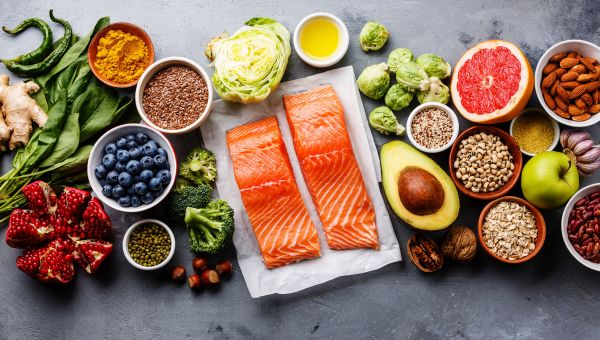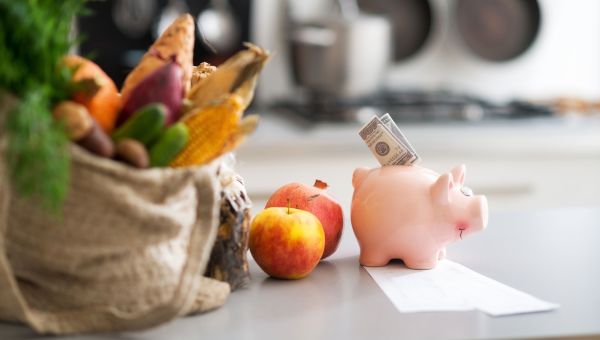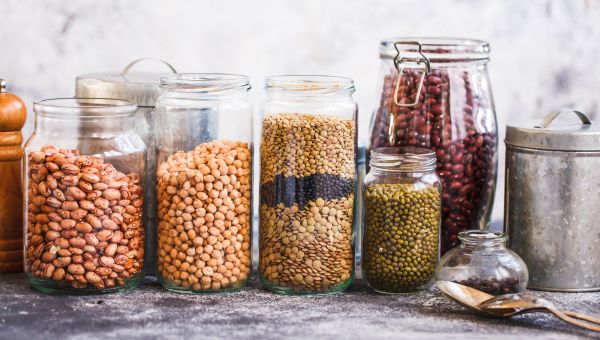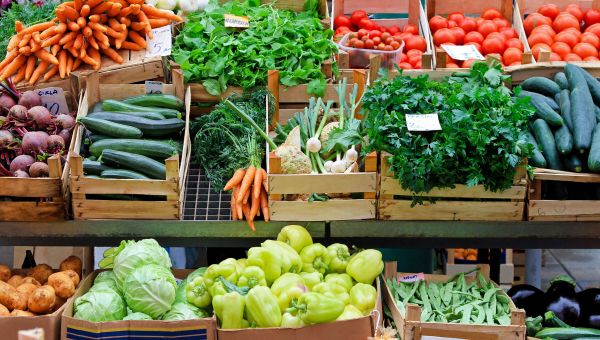What the heck should you eat? 5 takeaways from dr. Hyman’s new book, 'food'
Eating right is complicated—but it doesn't have to be.
Updated on September 22, 2025

For many people, eating right is understandably complicated. New studies emerge every day about whether certain foods should be part of your diet, making it tough to recognize what’s good and what’s bad for your health. But it doesn't have to be that way.
“Eating well doesn't have to be complicated, expensive or difficult, and it has a profound effect on your wellbeing and the wellbeing of the planet,” says Mark Hyman, MD, Director of the Cleveland Clinic Center for Functional Medicine.
It's this philosophy that drives Dr. Hyman's new book, FOOD: What the Heck Should I Eat? In it, he explores how food impacts your health, the environment and our economy. He shares his opinions on major food topics, like whether cow's milk is good for you, and if red meat causes cancer.
Here are some of the biggest takeaways from FOOD, plus ways to incorporate some of Hyman's principles into your own diet.

Eating healthy on a budget is possible—promise!
One of the biggest food myths is that eating healthy costs a lot of money. And while price often depends on where you shop, eating real food can slash your spending, especially in comparison to eating out.
“A simple dinner for a family of four consisting of roasted chicken, vegetables and salad can cost about half of what dinner at a fast food restaurant would,” Hyman says in a blog post.
He suggests you should focus on high-quality food—not necessarily the most expensive—in the following categories: fruits, veggies, nuts, seeds, beans, whole grains and proteins like chicken and fish. Here are some of the things he recommends for budget-friendly eating:
- Shop the perimeter of the grocery store. It’s where you’ll find affordable fresh produce, dairy, healthy proteins and seeds.
- Get creative with where you buy your food. You don’t have to shop in a gourmet food store, a health-food store or a farmer’s market to eat well, says Hyman. “Community supported agriculture and online shops are two of the ways to get whole food products for 25 to 50 percent less.”
- Buy in season. Fruits and vegetables are less expensive at certain times of the year. Keep track of prices using this chart.
- Plan out your weekly menu and grocery list. You'll avoid spending money on unnecessary extras and cut down on food waste.
- Buy in bulk. Stock up on foods you use daily—like eggs, beans, frozen foods and rice—at warehouse clubs. Only buy products you use regularly, or you may end up spending more.

Food is medicine
“Increasing evidence shows us that food is the most powerful ‘drug' we have not just to prevent, but also treat, cure and reverse most chronic illnesses,” Hyman explains in his blog.
When you eat whole, healthy foods, your body responds differently than it does when you fuel it with junk. “It turns out that the quality of the food you eat matters, and that if you drink 1,800 calories of Pepsi or eat 1,800 calories of almonds, it has very different effects on your biology, in terms of hormones, inflammation, gene expression and your microbiome.”
There's science behind this idea. High-quality foods packed with vitamins, minerals and antioxidants, for example, can nourish your brain and protect it from “waste” or free radicals. On the flip side, diets full of refined sugars can actually encourage free radicals and inflammation.
Certain chronic conditions can be better managed with the help of a healthy diet, too. For instance:
- If you have high cholesterol, whole grains can actually help lower your LDL levels.
- Canned salmon is packed with calcium and vitamin D, two nutrients that can keep bones healthy and protect against bone loss.
- Plant-based foods like soy and beans are chock-full of fiber and protein, which can help repair and rebuild cells.
The bottom line? While food shouldn't replace doctor-prescribed medicine, a diet rich in fresh produce and healthy sources of protein can have a positive impact on your health.

Follow the rules for each food category
Different food categories have different rules, according to Hyman, and you should know the basics about buying and consuming each one. For example, when it comes to meat, Hyman says you should look for grass-fed or organic options and avoid processed meats like deli ham, sausage, bacon and salami.
That's not all: Hyman gives recommendations for 11 more categories in FOOD, including nuts, seafood, beans and beverages.

Keep meal prep simple
When it comes to weeknight dinners, you’ll want something quick and easy, ideally involving minimal cleanup. Planning ahead—writing out your menu on Sundays, grocery shopping ahead of time and prepping any hard-to-cut veggies or meats—will save time the night-of.
Stir-frying, roasting and broiling are easy ways to prepare just about anything. Looking for a recipe? Here’s one from FOOD, ready in 25 minutes or less:
Skillet Tofu With Broccoli and Peppers
Ingredients:
- 2 teaspoons sesame oil
- 1 large red bell pepper, stemmed, seeded and julienned
- 2 large broccoli heads, cut into small florets
- ½-inch piece of ginger, peeled and minced
- 1 pound firm tofu, drained and crumbled
- 2 tablespoons wheat-free tamari
- 2 tablespoons red wine vinegar
- ½ cup vegetable broth or filtered water
- 1 tablespoon arrowroot
- 2 tablespoons filtered water
- 1 tablespoon white sesame seeds
- ¼ cup loosely packed cilantro leaves, chopped
Directions:
- Heat oil in large skillet or wok on medium-high heat until shimmering.
- Add peppers and broccoli, and cook until soft, 3 to 4 minutes, stirring occasionally.
- Stir in ginger and cook for about 1 minute.
- Add tofu and stir until tofu is well combined.
- Add tamari, vinegar, broth and bring to simmer.
- Combine the arrowroot with the water and pour mixture into the pan, stir and simmer for 2 to 3 minutes until liquid thickens.
- Divide tofu among the bowls, then top with sesame seeds and cilantro.
Serves 4

Find what works for you
The most important thing to remember about food: you should find a plan that works for you and your family, your dietary needs and your lifestyle. Ideally, it will be made up of simple, whole foods that don’t require much thought.
"Eating healthy is about piling up on the veggies and avoiding lots of refined sugars, flours and processed food," says Hyman. "And I like to put it this way: eat what God made, not what Man made.”
More On


video

article

slideshow


video


video
